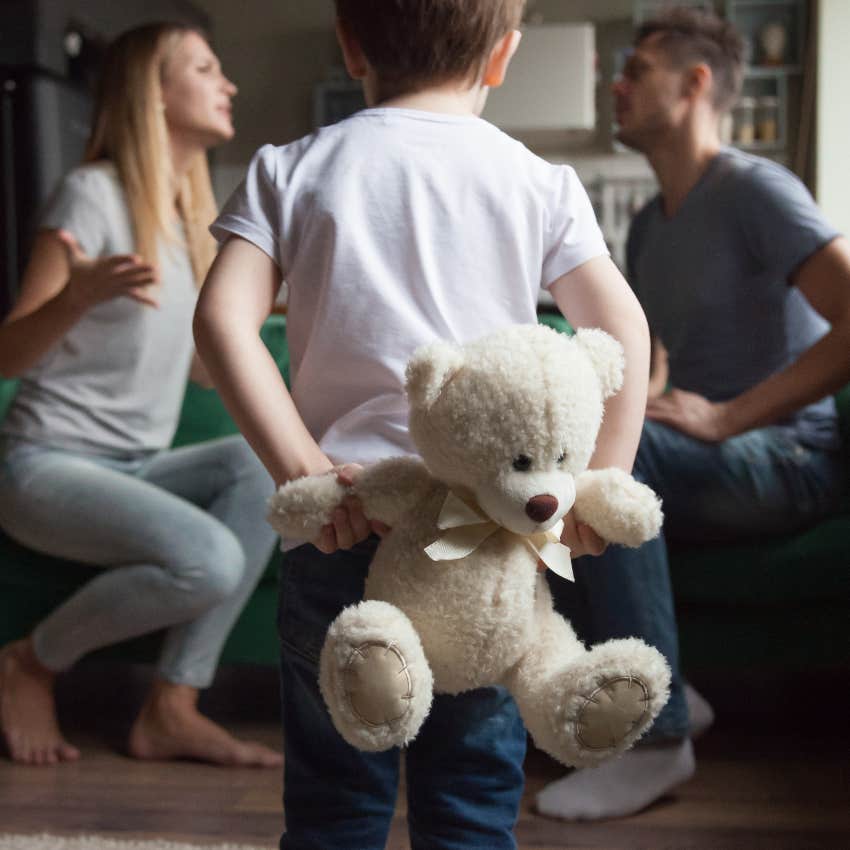Therapist Reveals 6 Things You Should've Never Been Responsible For As A Kid — That Might Be Affecting You As An Adult
If they sound familiar, you may have experienced parentification, which has long-term impacts.
 Gang Zhou / Getty Images Signature / Canva Pro
Gang Zhou / Getty Images Signature / Canva Pro Kids are supposed to be allowed to just be kids, but when our parents force us to grow up too fast, it can have long-term consequences on our lives. U.K. mental health professional Abby Rawlinson recently shared some tell-tale signs of this problem, called parentification, and how it might be impacting you as an adult.
The therapist shared 6 things you should've never been responsible for as a kid:
Parentification is a term mental health professionals use to describe an upbringing in which there were insufficient boundaries between a child and their caregiver. It frequently involves a child taking on responsibilities for their siblings or even their parents themselves that are, for obvious reasons, totally inappropriate for a child to be saddled with.
In a recent Instagram post, Rawlinson described parentification as a "role reversal," in which "instead of receiving care and support, [children] provide it" by taking on household tasks, for example, or even offering emotional support to their parents.
This, in turn, leads to struggles with mental health in adulthood — everything from anxiety and addiction to eating disorders and perfectionism. But despite the outsized impact, Rawlinson says parentification often goes unnoticed.
She shared six things kids should never be responsible for, which likely sounds familiar to anyone who has experienced parentification.
1. Being a mediator in family arguments
Kids having to witness constant arguments among their parents can be damaging in and of itself — a Norwegian study found such children are 46% more likely to experience symptoms of post-traumatic stress. When parents use kids as a mediator or go-between, these impacts are magnified.
 Photo: fizkes / Shutterstock
Photo: fizkes / Shutterstock
2. Providing advice for your parent's problems
It goes without saying that children are not equipped to help solve parents' problems. So when they're put in the position to do so, it causes inordinate stress and distracts from their own mental development in the process.
3. Providing emotional support to a sad, angry, or depressed parent
Here again — kids don't even know how to do this for themselves yet, let alone for a grown man or woman. When put in this position, they teach themselves to ignore their own emotional needs and problems in order to hold space for their parent.
This can lead to a lifelong inability to recognize their own emotions, which impairs not only their own development but also their relationships — particularly because it makes them hyper-independent.
4. Being a container for your parent's secrets
This can be downright frightening for a child — and often leaves them with no one to turn to for their own problems. Parentified children are often seen as "advanced" or "mature for their age" because they have had problems well beyond their years foisted upon them from an early age.
5. Meeting your parent's need for love or companionship
It goes without saying that this is not a child's job — it's meant to be the other way around. Many parentified children end up giving too much and having poor boundaries in relationships because of it, squelching down their own needs to please and appease their partners or friends.
6. Hiding your feelings to protect your parent
If you ever got in trouble for expressing your own needs or emotions at a time when your parent was expressing theirs, this likely happened to you.
Having to swallow your feelings pushes you into "fight or flight" mode — which is often now expanded to "fight, flight, freeze or fawn" — and this is harmful to your brain and your body. Being in fight, flight, freeze, or fawn mode floods your body with stress chemicals that, over time, can result in everything from mental health problems like Complex PTSD to organ function issues and musculoskeletal problems.
If any of this sounds familiar, you may have been parentified as a child. But as much as was placed on your shoulders, there is a path forward. As Rawlinson puts it, "Acknowledging parentification is the first step toward healing. By recognizing its impact, we can begin to unravel the complex emotions it leaves behind."
Therapists say that monitoring your thoughts of guilt and shame is a major key to beginning to heal from parentification and to allowing you to learn how to put yourself first and address the needs your parents, unfortunately, couldn't.
John Sundholm is a news and entertainment writer who covers pop culture, social justice, and human interest topics.

